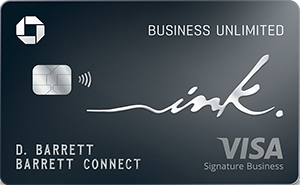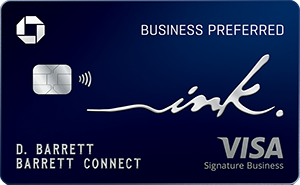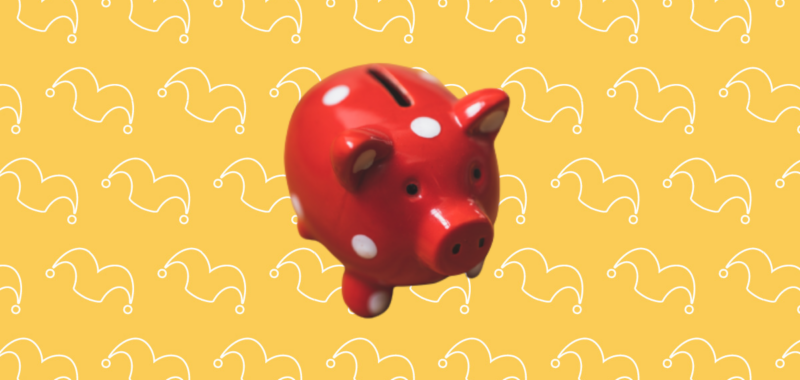Many workers transition into freelance work at some point in their careers. For some, it’s a way to increase their earnings while continuing to work a full-time job. For others, it’s a strategic decision after leaving a job that no longer meets their needs.
No matter how you get into freelancing, making well-thought-out financial decisions at every step of your journey is a must. Here’s my biggest money tips for freelancers exploring taking their business full-time.
Don’t jump in without a financial safety net
If you’re freelancing while working another job, I suggest not rushing to leave your full-time job. As you continue to scale your business and increase your client base, you may be tempted to give your two weeks’ notice as soon as possible. But it’s best to have a financial safety net to protect yourself.
One way to do this is to continue working full-time while growing your freelance business. This strategy will give you the added protection of a full-time paycheck, allowing you to cover your bills and everyday expenses while you learn and grow. Before transitioning to full-time freelance work, ensure you can cover all your living expenses with your freelance income alone.
If you’re ready to call it quits at your regular job, another solution may help you take your business full-time sooner: your emergency savings. Freelancers with a sizable emergency fund may feel more confident transitioning to a full-time freelance lifestyle because they have savings they can live on if necessary.
Here’s why it’s essential to consider your finances
Freelancing can be rewarding. You can benefit from a flexible schedule, control over what projects you do, and manage your earning potential. But outside influences can impact your work and your finances overnight. You may lose a big client. You may see a reduction in available projects. No matter the kind of work you do or your industry, you will experience slow times.
Business Credit Card Comparison
Consider these business credit cards that offer a convenient and efficient way to separate personal and business expenses, simplifying accounting and tax reporting.
Additionally, business cards can provide valuable perks such as rewards points, cashback, and expense tracking tools, enhancing financial management and the potential to help save money in the long run.

Ink Business Unlimited® Credit Card |
Earn $750 bonus cash back Earn $750 bonus cash back after you spend $6,000 on purchases in the first 3 months from account opening. |
Earn unlimited 1.5% cash back on every purchase Earn unlimited 1.5% cash back on every purchase made for your business |
Purchases: 0% Intro APR on Purchases, 12 months Balance Transfers: N/A
Regular: |
|

Ink Business Preferred® Credit Card |
Earn 120,000 bonus points Earn 120,000 bonus points after you spend $8,000 on purchases in the first 3 months from account opening. |
Earn 3 points per $1 in select business categories Earn 3 points per $1 on the first $150,000 spent in combined purchases on travel, shipping purchases, Internet, cable and phone services, advertising purchases made with social media sites and search engines each account anniversary year. Earn 1 point per $1 on all other purchases-with no limit to the amount you can earn. |
Purchases: N/A Balance Transfers: N/A
Regular: |
Having your finances in order can protect you. If you have an existing job elsewhere or money in savings, you can continue to pay your bills. But if you started freelancing full-time without a financial back-up plan, weathering these storms can be more challenging. If you’re new to freelancing and are considering making this a full-time career, please take my advice and plan financially.
Save up when things are going well
I’ve been a freelance writer for years and have experienced many ups and downs throughout my career. So I know what could go wrong, even when things feel safe and comfortable. That’s why I continue to prepare financially.
When work is plentiful, I like to set aside extra money in my savings account. Saving this cash feels less noticeable when I have a lot of projects keeping me busy.
By doing this, I feel more confident knowing that I’ll be able to take some time to restructure if something unexpected happens, like losing a well-paying client. I keep my money in a high-yield savings account to earn interest while it sits in the bank.
Want to get more financially prepared? You can open a small business bank account to keep your personal and freelance finances separate. Review our list of the best small business bank accounts to learn more about the top features of the banks on our list.
Alert: our top-rated cash back card now has 0% intro APR until 2025
This credit card is not just good – it’s so exceptional that our experts use it personally. It features a lengthy 0% intro APR period, a cash back rate of up to 5%, and all somehow for no annual fee! Click here to read our full review for free and apply in just 2 minutes.

